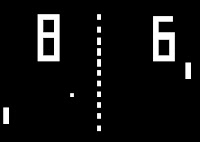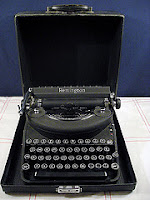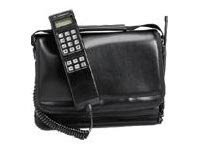I was born in ’59, that’s right all you young whipper-snappers out there, in the fifties (but barely). It means I’m fifty one but context can only provide a vision of how old that really is. In 1959, Alaska and Hawaii became the 49th and 50th states (in honor of my birth), Barbie dolls were introduced by Mattel (the start of negative body images among women), Weird Al Yankovic, Magic Johnson, Kevin Spacey, and Val Kilmer were born while Buddy Holly, the Big Bopper, and Ritchie Valens died (Bye Bye American Pie). Bobby Darrin’s “Mack the Knife” was the #1 song and the Beatles had not even invaded yet. A lot has certainly transpired in the past 51 years.
Technology has continuously challenged me to keep up. Technology I remember in my house as a kid can be inventoried as: 1) a black rotary telephone (the ones with a round dial you used to put your finger in and actually dial), 2) a black and white television; 3) a toaster that burned the toast every morning, and 4) a hifi with radio and turntable. (I still get nostalgic when I hear someone scraping toast). Our black and white TV was replaced by a color model when I was in third grade. Television programs ended at around 10 or 11 and a test pattern with an Indian in the center was all you saw until around six the next morning.
Video games entered my life in my senior year of high school in1976 when we were given a Pong game that played on the television. We enjoyed it but there were claims that the game damaged the television screens so I think we got rid of it. Sometime after Pong, Pac Man games were introduced and the pinball machine never recovered its former glory.
I paid little attention to technology in college, all I needed was my portable Remington typewriter for writing papers. My post-college room mate owned an Apple IIe computer which was useful for writing my Masters thesis. I think during the process he upgraded to a MacIntosh computer which was a giant leap forward in technology and it actually used 3.5 inch disks rather than the 6 inchers that the IIe required.
I first used the Internet during my Masters work when I used an online database for research at a local university, the only place it was accessible. I would not even have an email address for another four years or so and would not really begin to use the technology for several after that.
My first cell phone was a Motorola bag phone that weighed about three or four pounds. I remember the first two times that I was really impressed with the cell phone technology. The first was when I was travelling by car in Ontario, Canada and the phone rang. It was my secretary in California calling me. Here I was about 2,500 miles away, wireless, and the phone rang nonetheless! The second time was when some teenagers were acting like fools in a car. I was mad so I placed the phone on my dashboard and picked up the receiver and waved it at the driver who quickly sped away.
Grant writing jobs have emerged from the technological dark ages along with everything else. My first grants were written on computer so I never suffered the task of writing a grant on a typewriter. I consider those old-time grant writers to be a bunch of tough old birds, like the pioneers who came to California across the Wolfskill Trail in Conestoga Wagons. Grant research in those days surely would have required grueling time in the library searching the stacks for relevant literature to quote, more like my Masters research required. I’m soft and like it that way.
I arrived at home the other day to find an early Christmas present from a dear friend. The box was labeled Amazon and when I picked it up it rattled, so I thought I’d received a book. A book was inside, but it is more correct to say that I received books, thousands of books; my friend sent me a Kindle! This amazing little piece of technology can even read the books to me aloud! Although I am still learning all of its functions, I know that I can download books anytime and almost anywhere. It is amazing.













